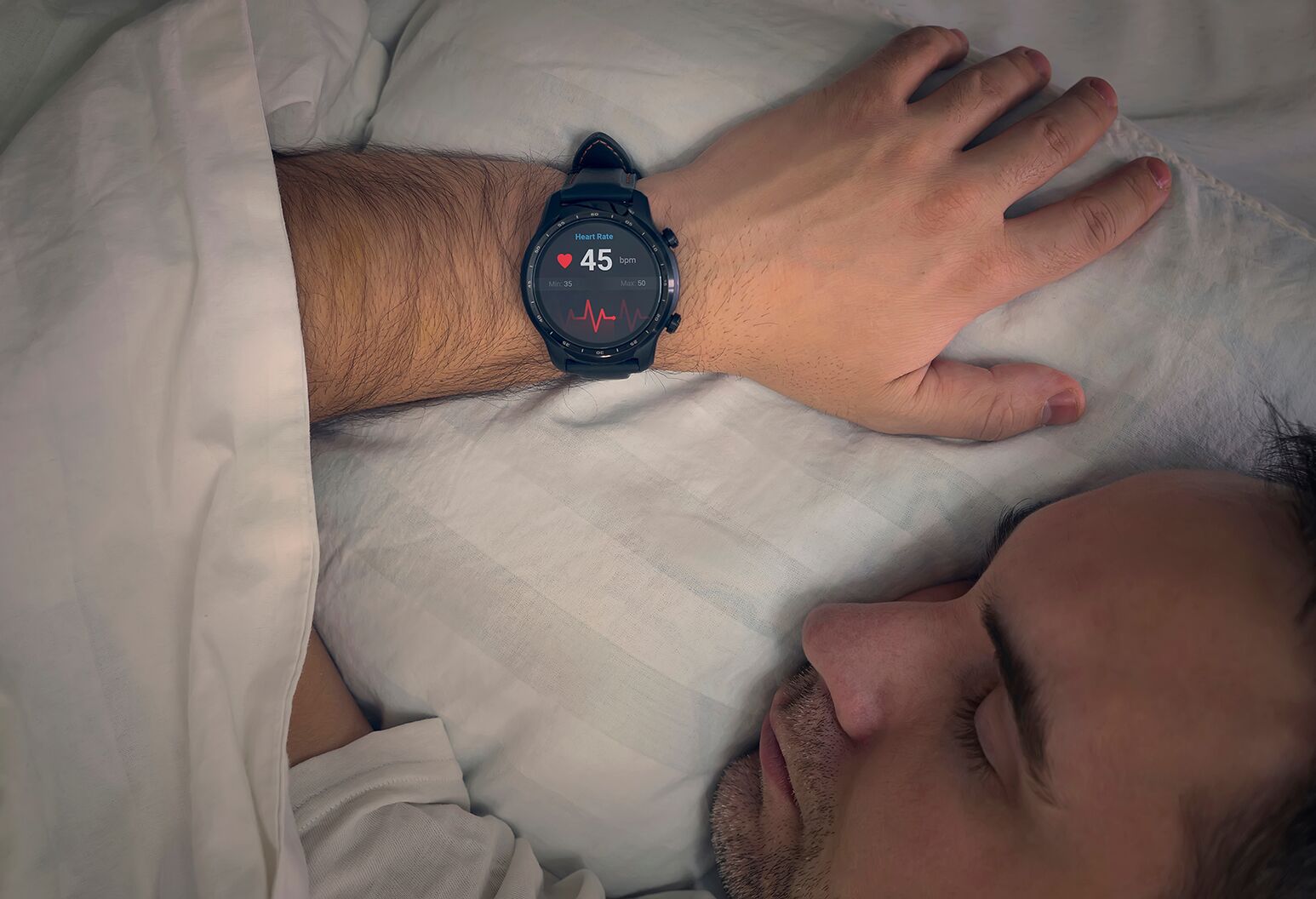sleep
How Sugar Cravings Lead To Poor Sleep

Your heart could be sending you a message in your sleep. A cardiologist explains why you should pay attention.
5 min read
Your heart pumps blood throughout your body 24/7—it doesn't take a break just because you're sleeping. But once your head hits the pillow and you drift off to dreamland, its operating mode does sort of shift into cruise control.
"Sleep stimulates relaxation, and that leads to changes in your resting heart rate," explains Evelina Grayver, MD, director of the Women's Heart Program at the Katz Institute for Women's Health. These changes are completely par for the course. But if you have certain health conditions, your heartbeat could be dropping to a lower than normal rate while you sleep—and that could be risky for your health.
Here, Grayver shares the scoop on how sleep impacts your heart rate, the signs that it could be time to talk with your doctor, and whether you should be tracking your heart rate overnight.
First, let's quickly review why sleep is so important for your heart in the first place. Consistently getting enough shut-eye gives your body ample time to rest and repair each night, which reduces inflammation that, over time, can cause damage to your cardiovascular system. Adequate sleep also lowers your risk for major heart disease risk factors like obesity, high blood pressure, and diabetes.
By providing your email address, you agree to receive email communication from The Well.
So, if you're not already getting the recommended seven to eight hours of sleep each night, work on making that happen. You may need to buckle down on being more consistent with bedtime or take steps to improve your sleep hygiene (like limiting screen time at night and winding down with a relaxing activity).
The average person's heart rate beats around 60 to 100 times per minute while they're awake and at rest (it'll naturally go higher when you're active or exercising). But it drops down to 50 to 75 beats per minute during sleep, or as low as 30 to 40 beats per minute for athletes in tip-top condition.
Here's why: While we're awake, the near-constant stream of activity and stimulation keeps our sympathetic nervous system—also known as our fight or flight nervous system—in control, so we can react to events at a moment's notice. As a result, our heart rate naturally stays a little higher, Grayver explains.
But a different system takes over while we're sleeping: the parasympathetic nervous system, or our rest and digest system. Basically, it's in charge of keeping all your bodily functions doing what they're supposed to do when you're offline, including maintaining your heart rate and blood pressure. And when the parasympathetic nervous system is running the show, your heart rate slows down, Grayver adds.
Fewer beats per minute means that your heart takes tiny pauses when you're sleeping. "The average, healthy person with no underlying cardiovascular disease can have pauses up to three seconds," Grayver says.
But some people experience pauses that last for longer, which means that their heart rate is lower than the average 50 to 75 beats per minute during sleep. The longer stretches between beats could be a sign of an underlying health problem that needs to be addressed so they don’t lead to serious complications. "It can potentially reduce oxygen and blood flow to other organs, including the brain, which can cause a stroke," Grayver explains.
One of the most common culprits? Sleep apnea, a sleep disorder marked by pauses in breathing that affects roughly one in four U.S. adults. For many people with the condition, "excess weight on their neck can obstruct their trachea and drop their blood oxygen levels, which can slow their heart rate when they're sleeping," Grayver says.
Sleep apnea can cause a person to snore loudly, make choking or gasping noises while they sleep, wake up feeling tired, or have frequent headaches. The condition is manageable with treatment, but ignored, the toll on your cardiovascular system can cause high blood pressure, heart attack, or a stroke.
Other health issues can also affect your heart rate overnight. According to Grayver, these conditions could also have an impact:
Sleep apnea and the other conditions mentioned above typically cause symptoms beyond a lower sleeping heart rate. Things like frequent or loud snoring, daytime tiredness or headaches, faintness, or dizziness upon waking up are all potential red flags. "Those are all important to bring up with your doctor," Grayver recommends.
Based on what you're experiencing, your doctor will order diagnostic tests to figure out what you might be dealing with. That could include a sleep study, which records your brain waves, heart rate, and breathing while you sleep to diagnose sleep disorders.
Your doctor will recommend the appropriate treatment if you're diagnosed with a condition that affects your sleeping heart rate. Sleep apnea, for instance, is typically treated with a continuous positive airway pressure or CPAP device, which uses mild air pressure to keep your airways open while you sleep. That keeps your blood oxygen concentration at a healthier level, which in turn supports a normal sleeping heart rate.
If you want some extra assurance, consider using a heart rate monitor while you sleep, Grayver suggests. These wearable devices (usually a watch or a ring) track your pulse and store the data right on your smartphone. So, you can rest easy—and report any changes to your doctor.
The Well is Northwell Health’s commitment to the future of health care. In this time of information overabundance, much of which is inaccurate, unhelpful, or even difficult to understand, Northwell Health is on a mission to make a difference as an honest, trusted, and caring partner. The site connects with consumers to provide them with personalized content that reduces their stress, makes them laugh, and ultimately feel more confident and capable on their healthcare journey.